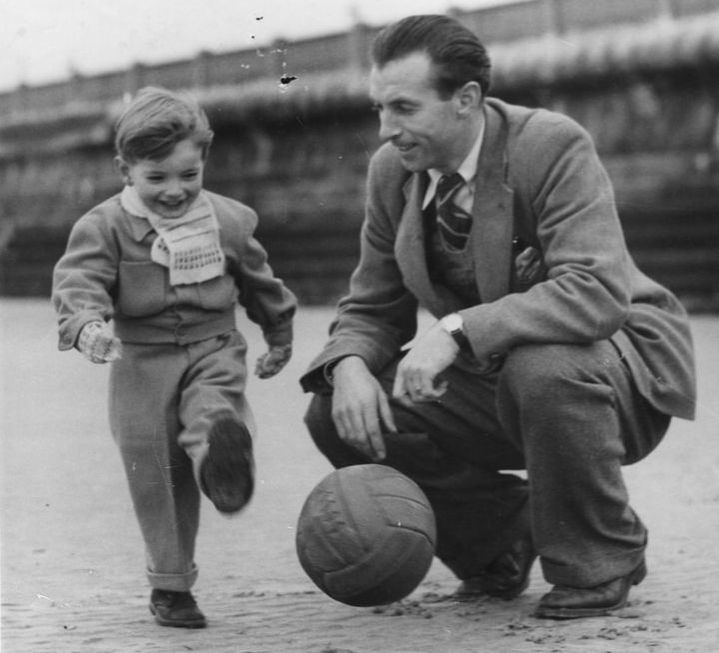|
“You can be the best surgeon in the world or the best hairdresser in the world. But if you’re not warm with people, you will not have a successful and happy life.”
IT would be very easy to dismiss this documentary as another one that glorifies football and the sports men who are adored. MATTHEWS outlines a man who, while unquestionably talented, was much more than the sport he played. As the daughter of Sir Stanley Matthews describes, “he had tremendous warmth, he would meet people in the street and talk to them”. To many, he was the “most important figure in football”, yet he still maintained humbleness and graciousness, a point to which this documentary keeps returning. MATTHEWS begins, somewhat surprisingly, in the South African streets of Soweto, following a boy as he kicks a make-shift ball made out of plastic bags. Upon reaching a football stadium, the boy comes across the dressing room and sees a football shirt with the number seven on the back. Our pre-conceived notions of Sir Stanley Matthews go out the window and we wonder how his story ended up here. Before discovering the reason, we are transported back to the very beginning, with details of the significant moments in Matthews’ upbringing and early career. The documentary uses newspaper clippings, black and white sports footage and interviews to set the scene of not only the times in which he lived, but the man he was and would later become. This part of the documentary is very football focused, although the film does well to constantly remind you of his personal qualities; his sheer determination and love of his craft exceeded expectation. Commentators singled him out for special praise; pre-match conversations were always about him and his football skills. “Number seven in stripes” is all the commentators had to say to let the viewers at home know who was on the ball. A plethora of former footballers, historians, television personalities, family and fans are interviewed, each with their own special take on who Stanley Matthews was to them. The layering of interviews paints a distinct picture as each return to the narrative of Matthews’ humbleness. Yet, to no one was he more special than the boys he took under his wing during the South African apartheid. It is here that the documentary stands out. The transition from his playing days to retirement is elegantly achieved. We witness the first footballer to receive a knighthood, the oldest player to represent England, the first recipient of the coveted Ballon d’Or football award, or the unfortunate circumstances that saw the peak of his career interrupted by war. It is the documentary’s retelling of Matthews’ readjustment to his post-playing days, his travels around the world helping communities through football, which is particularly fascinating. It may be easy to describe his influence in purely footballing terms. But, through the abundance of interviews of his former team in South Africa, we are shown the social impact of his dedication to sport. One of his former players describes him “a father to us”. The documentary takes us beyond football, delving into the human spirit. Sir Stanley Matthews’ legacy defined generations and lives long after he hung up his boots. Upon his death in 2000, thousands lined the streets of Stoke-on-Trent to commemorate his life. MATTHEWS does not mourn Sir Stanley but celebrates his extraordinary life, stripping away pre-conceived notions of footballers and making the icon human. More reviews in the ARCHIVE >>> |


